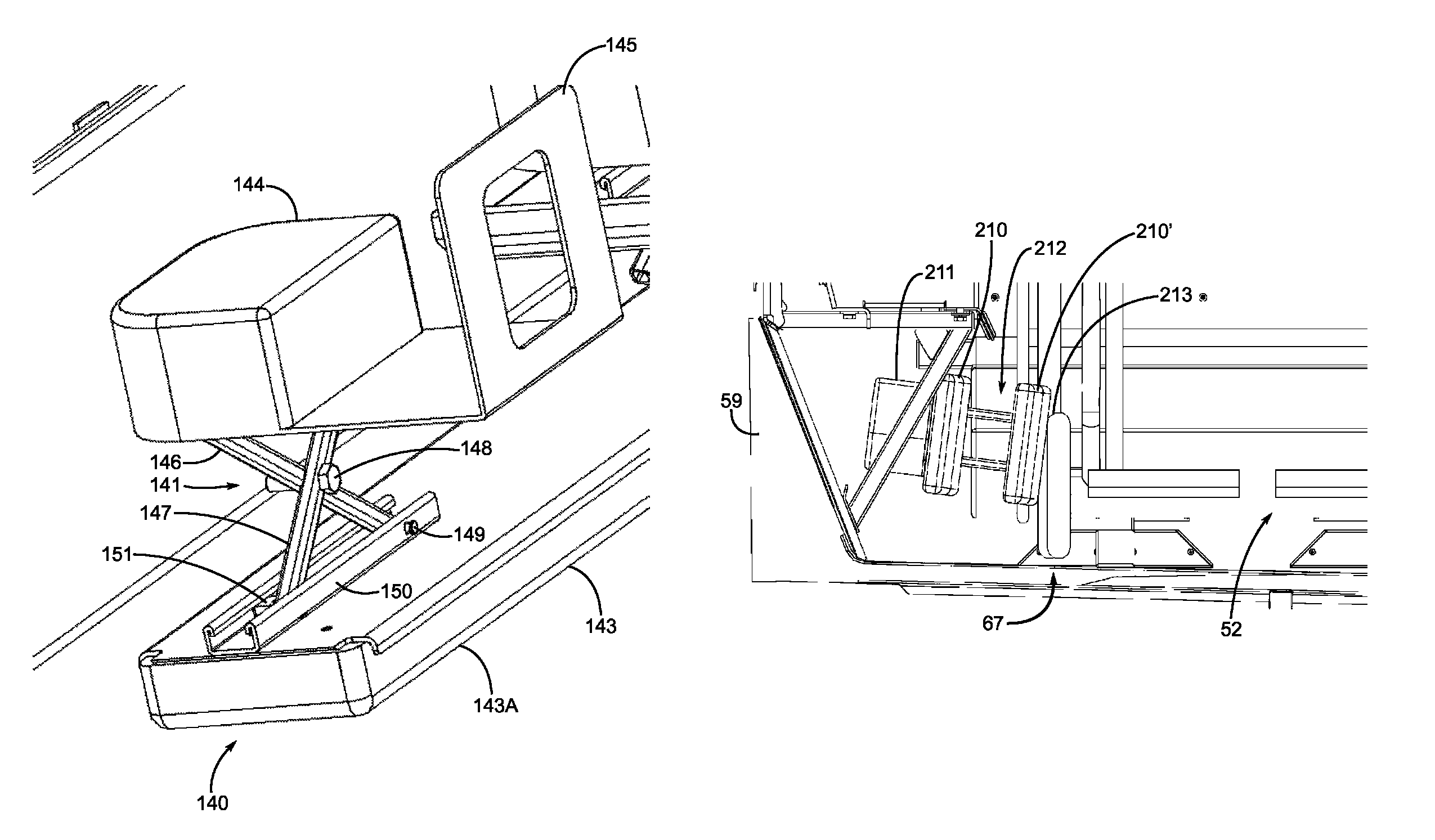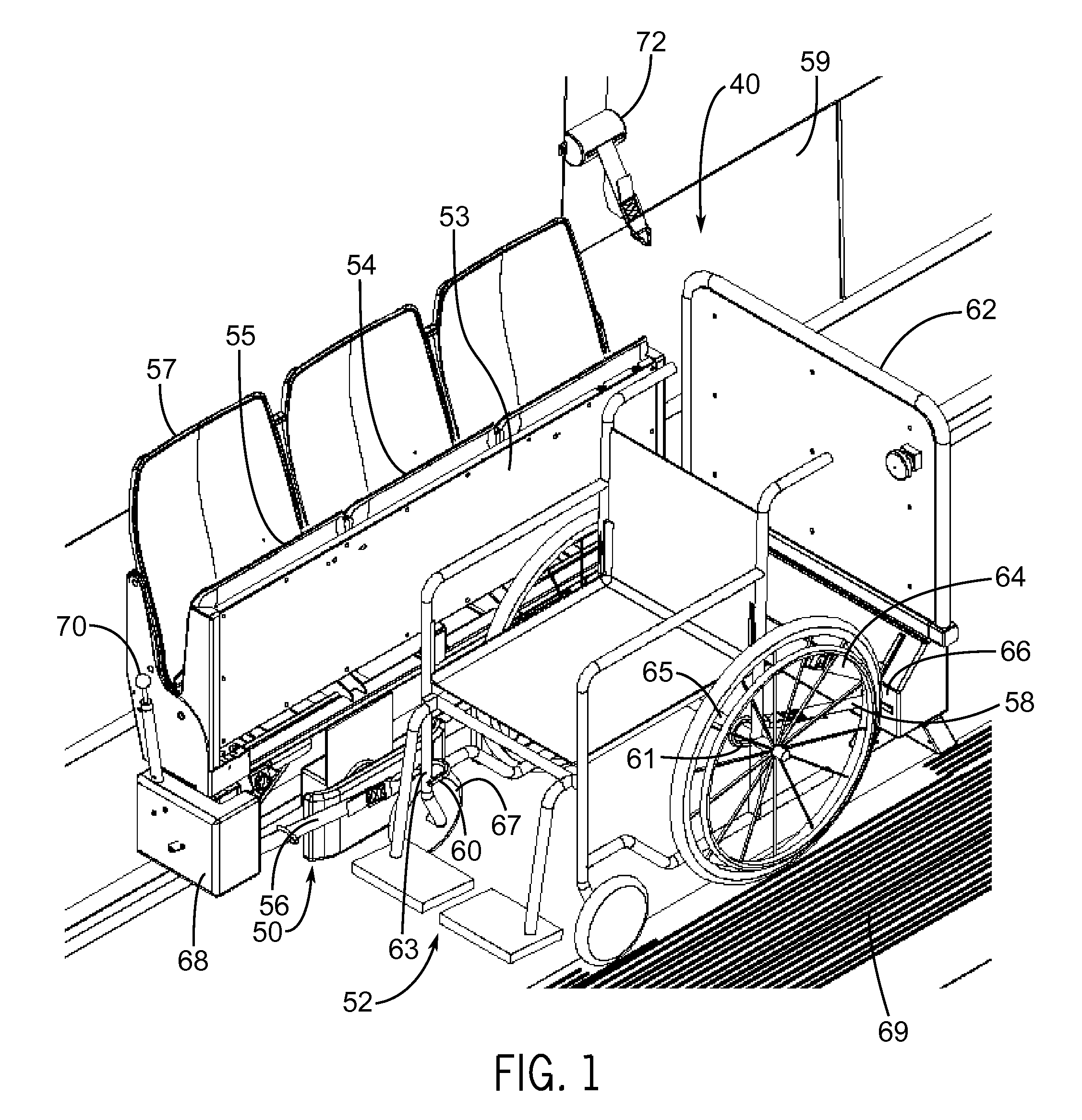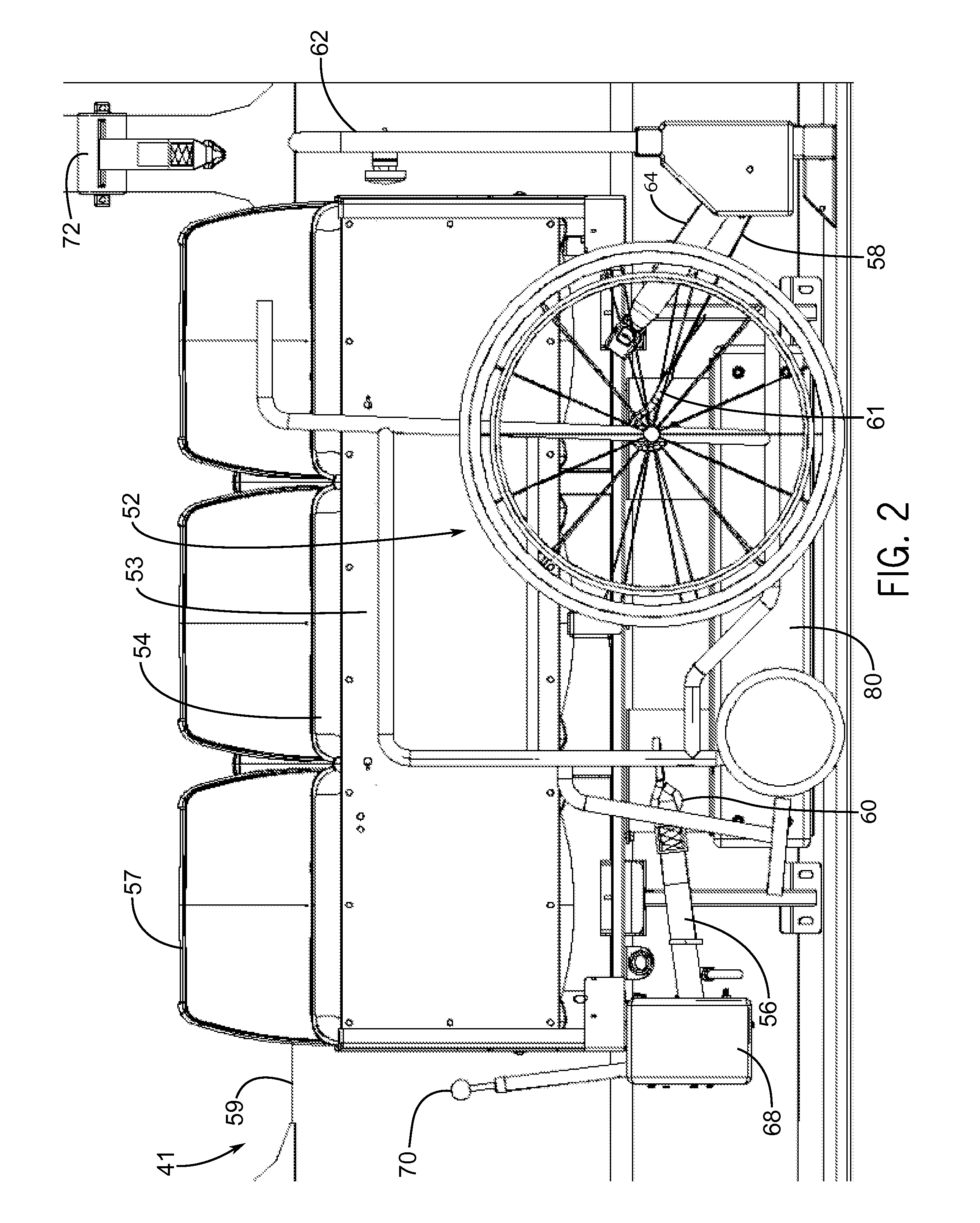Mobility securement system
a security system and mobility technology, applied in the field of mobility security systems, can solve the problems of exposing the mobility device and its passenger to forces, the movement of the wheelchair or the mobility device, and the mobility device is not always available to passengers and others traveling in the mobility device. , to achieve the effect of secure confinement of the disabled occupant, preventing further movement of the mobility aid, and facilitating the placement of the mobility aid
- Summary
- Abstract
- Description
- Claims
- Application Information
AI Technical Summary
Benefits of technology
Problems solved by technology
Method used
Image
Examples
Embodiment Construction
[0062]While this invention is capable of embodiment in many different forms, there is shown and described in the drawings and associated text, specific embodiments, with the understanding that the present disclosure is to be considered an exemplification of the principles of the invention and is not intended to limit the invention to the embodiments illustrated.
[0063]The following description and drawings are illustrative and are not to be construed as limiting. Numerous specific details are described herein to provide a thorough understanding of the disclosure. However, in certain instances, well-known or conventional details may not be described in order to avoid obscuring the description. References to one, or an, embodiment in the present disclosure can be, but not necessarily are, references to the same embodiment; and, such references mean at least one of the embodiments.
[0064]Reference in this specification to “one embodiment” or “an embodiment” means that a particular featur...
PUM
 Login to View More
Login to View More Abstract
Description
Claims
Application Information
 Login to View More
Login to View More - R&D
- Intellectual Property
- Life Sciences
- Materials
- Tech Scout
- Unparalleled Data Quality
- Higher Quality Content
- 60% Fewer Hallucinations
Browse by: Latest US Patents, China's latest patents, Technical Efficacy Thesaurus, Application Domain, Technology Topic, Popular Technical Reports.
© 2025 PatSnap. All rights reserved.Legal|Privacy policy|Modern Slavery Act Transparency Statement|Sitemap|About US| Contact US: help@patsnap.com



